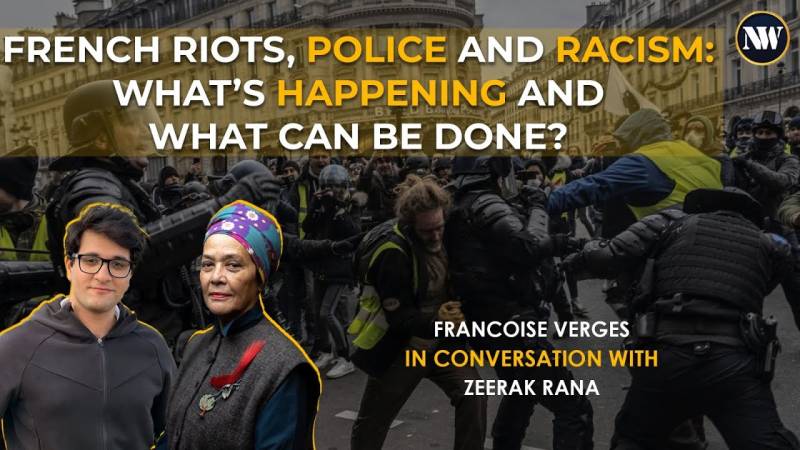In recent years, France has found itself at the crossroads of a deeply troubling confluence of events. The shooting of a 17-year-old teenager by a police officer over a routine traffic violation became the catalyst for a wave of protests and riots that have swept across the nation. As the world watches these events unfold, it's essential to understand the historical, social, and political factors that underpin the unrest and to recognize the larger global trend of far-right resurgence that is influencing the discourse.
The violence and protests witnessed in France have captured global attention, prompting discussions about their underlying causes and implications. However, this isn't the first time the country has faced such turmoil. According to Dr. Francois Virges, a Ph.D. in political science from the University of California at Berkeley and member of the Centre of Cultural Studies at Goldsmiths University of London, the difference this time lies in the intensity of police violence and the accumulation of incidents that reflect deep-seated structural racism within French society and institutions. While previous instances of protests have occurred, this time, the government's inadequate response and inability to understand the grievances have exacerbated the situation.
Dr. Virges emphasizes that the current crisis is not an isolated event but rather a reflection of an ongoing struggle against structural racism. France's history of colonization and its legacy have left indelible marks on the societal fabric, contributing to persistent racial biases and disparities. Communities of color, particularly those from African and Arab backgrounds, often find themselves disproportionately affected by poverty, discrimination, and limited opportunities. The recent events have only highlighted the need to address these deeply ingrained inequalities.
The situation in France is not unique; it's part of a broader global trend marked by the resurgence of far-right ideologies. Driven by xenophobia, Islamophobia, and anti-immigrant sentiments, far-right movements have gained prominence in various European countries. Dr. Virges underscores the alarming rise of such ideologies in Sweden, Finland, Italy, and Spain, countries where their emergence was unexpected. The presence of these ideologies fuels division, intensifies societal tensions, and complicates efforts to address systemic racism.
Media plays a pivotal role in shaping public perception, particularly in times of crisis. However, media coverage of protests can be a double-edged sword. Dr. Virges points out that some outlets tend to sensationalize and misrepresent events, focusing on incidents of violence or looting rather than addressing the underlying issues. This narrative not only detracts from the genuine concerns raised by protestors but also perpetuates a harmful stereotype that paints them as troublemakers rather than advocates for justice and equality.
Amid these challenges, there is hope for change. Dr. Virges outlines a multi-faceted approach that includes education, building solidarity, and strategic activism. Education is crucial to understanding the historical and structural roots of racism and inequality. By raising awareness and fostering a collective understanding, society can break free from divisive narratives. Building solidarity across marginalized communities is another essential step. This unity counteracts the divisive rhetoric of far-right ideologies and reinforces the fight against systemic oppression.
Lastly, Dr. Virges underscores the importance of strategic organizing and activism. The protests in France are not solely about racism; they also touch on broader issues of economic inequality and class struggle. By addressing these issues collectively, protestors can challenge the existing power structures and demand tangible change. The path forward requires a sustained effort from citizens, activists, educators, and policymakers alike.


